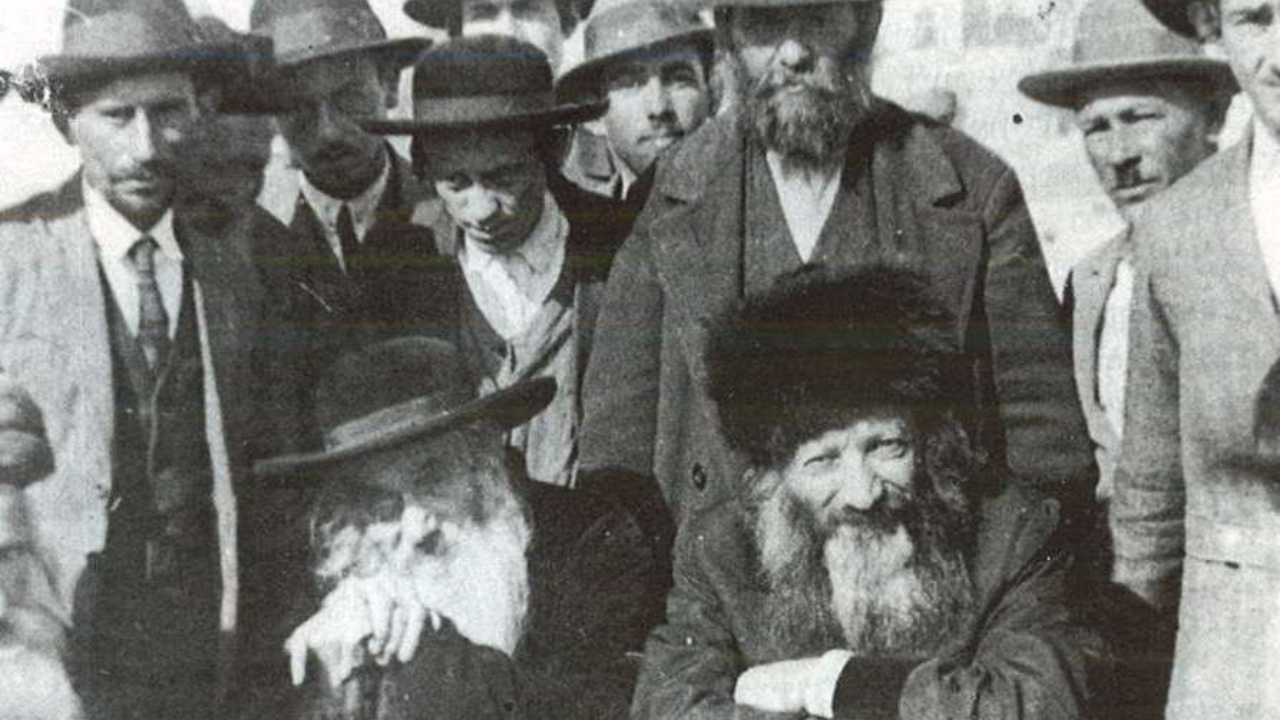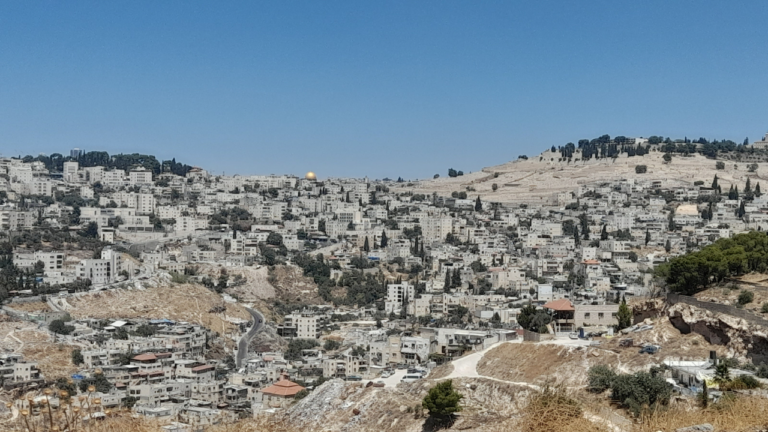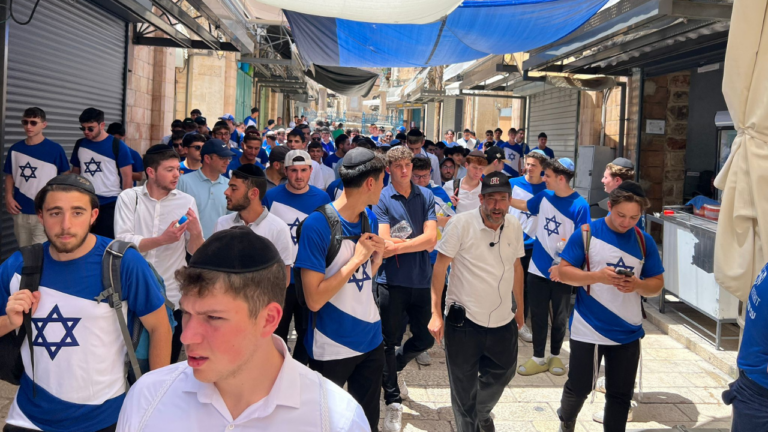A Eulogy in Jerusalem: the City that Unites Two Messiahs
In the summer of 1904, a memorial service was held for the recently deceased Theodor Herzl in the city of Yaffo. The newly minted chief rabbi of Yaffo, fresh off the boat from Lithuania, was asked to speak at the event. A young Rav Avraham Yitzchak HaKohen Kook delivered a “eulogy” in which he did not mention Herzl’s name once. Entitled המספד בירושלים, this deceptively short speech captured Rav Kook’s profound philosophy on the purpose of this physical universe, the role of the Messiah in bringing the world to a state of perfection, and modern Zionism as an essential step in that cosmic process.
Rav Kook began with the verses in Zechariah (chapter 12) describing a cataclysmic future war as the nations of the world surround Jerusalem and are eventually destroyed (Chazal identify this war as מלחמת גוג ומגוג). Zechariah then describes that, on that day, there will be a great eulogy in Jerusalem in which the house of Dovid HaMelekh cries over the loss of a single person, as one who cries for the loss of a firstborn son. Who is this precious person whose death causes such distinct pain? The Gemara in Sukkah (52a) explains that this mysterious person is none other than Mashiach ben Yosef, the messiah who descends from Yosef. After defeating Amalek in the final wars of time (see Maharsha ibid.), Mashiach ben Yosef will be killed by the other nations of the world, and Dovid’s family will be inconsolable.
Rav Kook posed a very simple question. Who on earth is Mashiach ben Yosef? And why on earth do we need two messiahs? There has been enough confusion throughout history trying to identify one messiah. Why does Hashem desire two saviors?
Rav Kook explained that these two heroes are necessary to fulfill the purpose of this physical universe. HaKadosh Baruch Hu deliberately created us with a physical body and spiritual soul. The ultimate goal of Am Yisrael is to take physical matter that has the illusion of independence from Hashem and imbue it with spirituality through the kochot of the neshamah, elevating all of creation back to its Creator. A body without a soul or a soul without a body would be useless.
Similarly, Hashem created two spiritual paradigms in Klal Yisrael, represented by two of our Imahot (I am embellishing on Rav Kook’s comments, see Michtav Me’Eliyahu volume two). Rachel, and by extension her sons Yosef and Binyamin, represents the “body” of Klal Yisrael (referred to by the Zohar as the Almah d’Misgalya, the Revealed World). Rachel and her children are outwardly beautiful. Her descendants are renaissance men who dominate the physical world. Yosef economically sustains and politically controls the entire world. Yehoshua (descendant of Ephraim) conquerors Eretz Yisrael and transitions Klal Yisrael from pure spiritual subsistence in the desert to physical working of the land.
But there is also Leah, the mother of our nation who represents internal spiritual beauty (referred to by the Zohar as the Almah d’Miskasya, the Hidden World). Her children represent the “soul” of the Jewish people. Only a descendant of Leah could receive the Torah from Hashem. Moshe Rabbeinu’s ability to transcend this world and forego physical existence for forty days is due to the spiritual koach of Leah Imeinu.
conflict between the body and soul, when tension arises between these two indispensable paradigms, Klal Yisrael is in mortal danger.
Mashiach ben Yosef is particularly at risk when the other shevatim literally or metaphorically sell him away. Over 100 years ago, Rav Kook warned that if Klal Yisrael will not start appreciating the unique contribution that Yosef makes, continuously dismissing or disparaging his unique spiritual role, we will lose him. And when we finally see Mashiach ben Yosef’s greatness, it will be too late; only after his death will we realize how important and precious he was. It is only when the other tribes bring Yosef close, ויגש אליו יהודה, that Klal Yisrael will merit salvation and witness the redemption of this universe.
As we will develop further in the coming weeks, Jerusalem is the place that reveals the deep symbiotic relationship between Yosef and Yehudah, Rachel and Leah. There have been too many hespedim in the Jerusalem cemetery that bears Herzl’s name. With fervent prayers for the day in which love and respect will draw Yehudah and Yosef together forever.
The two mashiachs represent these two spiritual paradigms. Ultimately, Mashiach ben Dovid as a descendant of Leah is supposed to be the leader. After all, the neshamah is supposed to lead the guf to its ultimate purpose. But it takes a Moshe and Yehoshua, two leaders who possess deep mutual respect and love for each other, to bring Klal Yisrael back to Eretz Yisrael healthy in body and spirit. When there
is conflict between the body and soul, when tension arises between these two indispensable paradigms, Klal Yisrael is in mortal danger.
Mashiach ben Yosef is particularly at risk when the other shevatim literally or metaphorically sell him away. Over 100 years ago, Rav Kook warned that if Klal Yisrael will not start appreciating the unique contribution that Yosef makes, continuously dismissing or disparaging his unique spiritual role, we will lose him. And when we finally see Mashiach ben Yosef’s greatness, it will be too late; only after his death will we realize how important and precious he was. It is only when the other tribes bring Yosef close, ויגש אליו יהודה, that Klal Yisrael will merit salvation and witness the redemption of this universe.
As we will develop further in the coming weeks, Jerusalem is the place that reveals the deep symbiotic relationship between Yosef and Yehudah, Rachel and Leah.
There have been too many hespedim in the Jerusalem cemetery that bears Herzl’s name. With fervent prayers for the day in which love and respect will draw Yehudah and Yosef together forever.



